Good Nutritional Foods to Build Muscles – Healthy Diet Plan
Reviewed by: Dr. T S Deepthi Sarojini | Author: Manoja Kalakanti
If you think staying fit is rocket science, then how about gaining that V- shaped look you dream for? Building muscles in not rocket science, it requires consistent hard work with discipline. Most of us assume that we can get our body trained perfectly at gym and build muscles with time. Is that all required to build muscles? Most of the body builders and trainers suggest that body building is more than 50% nutrition. The healthier bodybuilding foods you include in your diet, the more gains you could expect. Most people who want to build muscles will usually overlook the nutritional side, but the fact is that improper diet will limit the results though you are on your continuous training program. A balanced and healthy diet plan for men is essential to supply the body with necessary nutrients for building lean muscle mass and burning fat.
Training at the gym following a solid nutrition program will help you to gain some serious strength and mass. Researchers say that paying attention to calories, supplements, micronutrients and having the right meal at the right time can have a huge impact on your results. Here are some best nutritional foods that you need to add to your diet plan in order to boost up your muscle mass and strength. Follow up this healthy diet plan along with your training program.
Good Nutritional Foods To Build Muscles
Add Calories to Your Diet
Building muscles requires eating more calories. The more weight you gain, the more calories your body needs to burn them off each day. Don’t overdo the intake of calories, else your body starts storing fat. The key to managing calories in a muscle building diet plan is to eat more calories than you burn. So how many extra calories are required to facilitate your gain muscle? Well, that depends on how many efforts you are putting and how much hard work you are doing during your training period.
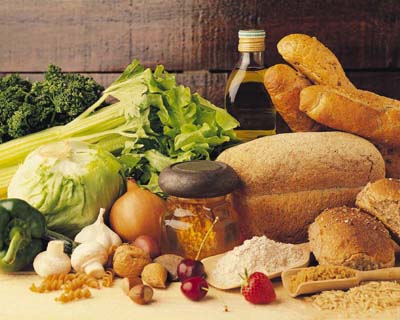
Experts say that your body will put up half a pound of muscle every week and adding too many calories to your diet results in fat growth. Follow a healthy diet chart and consume 250 to 500 calories per day to reap good benefits. Nuts, seeds, dark chocolate and peanut butter can be said as good sources of calories.
Don’t Skip Your Meals
Skipping meals and having a great brunch, or going off to an early supper should be seriously avoided. If you are doing this, then congrats you can drop your efforts in gaining a muscular body. Follow the structure of 1200 calorie meals that includes 5 to 6 small meals. It increase the body’s metabolism and thus in the process your body doesn’t store much fat. We usually follow the tradition of ‘3 meals per day’ as our cardinal mantra, but it is suggested to have at least 6 quality meals each day. Include 40 to 60 grams of proteins and 40 to 80 grams of carbs depending on your body size counts.

Except for healthy and good fats dietary fats should be very low and it can vary up to 5 to 10 grams per meal. Apart from this Meal timing also plays a key role in staying lean while bulking up.
Eat Good Pre and Post Workout Meals
Pre and post workout meals are the most important meals for bodybuilders because a poor diet can undermine all their efforts and hard work. A hearty pre-workout meal can provide the body with the necessary fuel to push through a power packed training session. Pre-workout foods should be packed with protein if you are into strength training because carbohydrates keep the body energizes during long workout sessions. It acts as the fuel and promotes the efficient use of oxygen. The ideal post-workout meal should consist of high-quality protein that helps in recovery of the strained and exhausted muscles and tissues. The amino acids present in protein helps the muscles to recover from the stress of the workout and reduce post-exercise muscle soreness.

Give Importance to Proteins
The most important nutrient of any muscle building diet plan is proteins. Proteins are rich in amino acids that can naturally be used as the building blocks of muscle protein. The recommended protein intake on daily basis is half a gram per pound of body weight, but experts say that in order to build up an athletic body, one need to take double that amount in their diet. It is also suggested that consuming at least 1 gram body weight will help on a daily basis. Novice trainers need to include at least 1.5 grams of protein as their body will respond most rapidly to training.
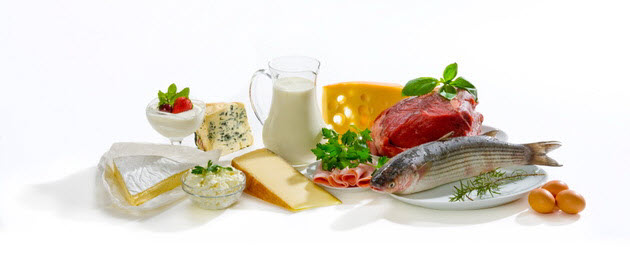
One could opt for lean natural sources of protein such as chicken, beef, eggs, fish, dairy and turkey. These are the sources where you find complete protein food and are a good source of amino acids. Remember that our body does not produce amino acids on its own, so changing your diet plan by including these foods is necessary.
Rethink Your Drink
The drinks and beverages you consume also play an important role in a muscle gain diet plan. While your diet must contain unprocessed foods, you need to give a little attention on your drinks. As proteins are a must, the alternative way to include proteins in your diet other than the above-mentioned sources is to try out a protein shake. Though protein shakes are considered as supplements at times, they are critical when you are on a serious training. Either drinking a protein shake that contains 20 grams of whey protein or a mix of whey and casein along with 40 grams of slower digesting carbohydrate will work. You can also opt for fruit smoothie recipes with kiwi, banana, berries, apples and melons.
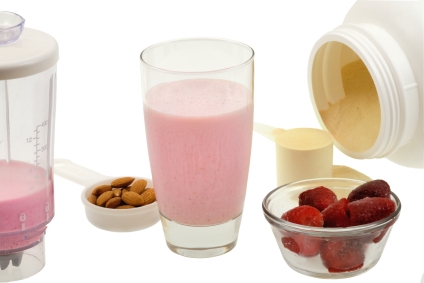
Immediately after post workout, you can have 60 to 100 grams of faster digesting carbs and another 20 to 40 grams of protein shake up. Avoid soft drinks and honey as they contain simple carbohydrates. Besides this, the most important drink in your diet is water. Water maintains the quality of your tissues, their resistance to injury and their performance. Drink lots of it and make sure you get enough of it throughout your workout. It is best to stay away from energy drinks and fruit juices because they are high in fructose and sugar that do more harm than good in the long run.
Eat the Right Carbs
Carbohydrates are stored in your muscles as glycogen, and they pump your muscles with fuel during heavy workouts. Consuming 2-3 grams of carbohydrates per pound of body weight/each day is a must. Novice trainers are suggested to take 360-540 grams of carbohydrates daily to gain the right mass. Usually for a trainer, a slow carb 30 minutes pre-workout and fast carbs post workout is suggested. Fruit, oatmeal and whole grain bread are the good choices for low carb diets. Healthy oatmeal recipes for weight loss and muscle building are quite popular in health and fitness circles.
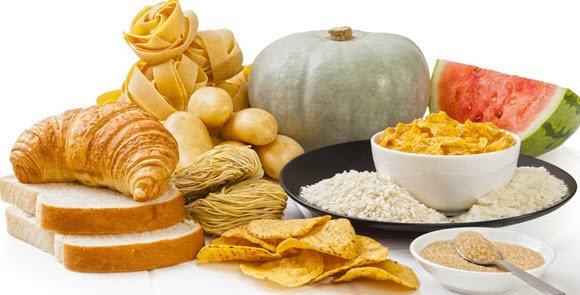
White bread, baked potato or a sports drink are fast digesting carbs after a post-workout. These will drive the carbs into muscle cells, where they will be stored in the form of glycogen to be used for the next workout.
Give Importance to Timing
When it comes to bulking up, eating good nutrition foods and doing weight training is not enough for muscle gain. Timing of the meals and eating the right foods at the right time is also important to support mass gain. For people looking to gain mass, it is best to increase the meal sizes at breakfast and post training because these are the two times of the day when the muscles are hungry for nutrients and calories. The meal size at breakfast must be increased because at this time the muscles are nutritionally starved after a long night’s gap. The size of the past-workout meal should be increased because the worked and stressed muscles are badly in need of nutrients to resume the process of muscle and tissue recovery. Increasing the meal sizes during these two periods promotes optimum muscle growth while keeping the body fat levels low. You can promote smart muscle growth by manipulating the calorie intake.
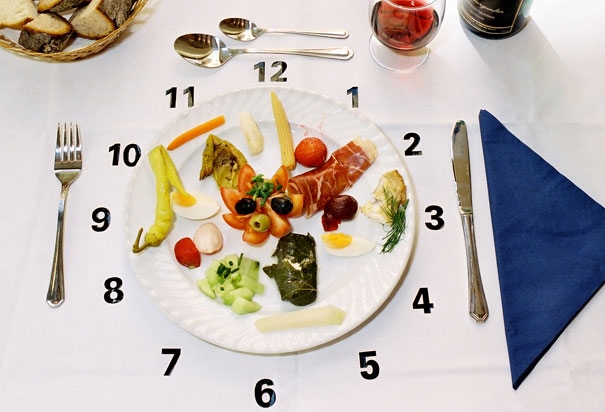
Use Supplements if Possible
Most newbie weight trainers are confused about the use and benefits of muscle building supplements. But in reality, basic supplements like protein powders, creatine and multivitamins work really well when combined with a balanced diet and regular weight training. Many famous athletes and bodybuilders swear by their protein shakes and one of the most popular choices is whey protein that is effective in promoting the growth of muscle mass. Proteins are also useful n production of hormones, enzymes, nucleic acids and immune- system components that helps in muscle contraction, growth and recovery. A person can take 1 gram of protein supplement for per pound of body weight, so a person weighing 200 pounds can take 200 grams of protein to promote muscle growth. The best times to take protein supplements are after a workout session and before going to bed. One can also take mineral and vitamin supplements to balance the requirement of the essential minerals for the body.
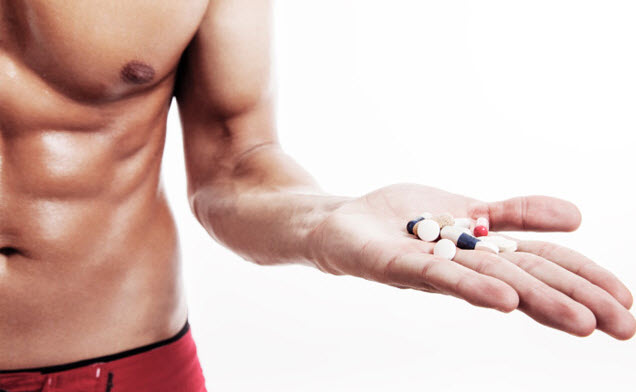
Rest
This is perhaps the most ignored and overlooked part of weight training. No matter how many protein shakes you gulp throughout the day and how much iron you pump, your muscles won’t unless you provide rest to your body. The muscles and tissues are broken down after an intense weight training session, and this needs proper nutrition and rest for recovery so that they can grow bigger and stronger. Failing to get enough rest and sleep can slow down growth and recovery, reduce mental acuity and energy levels and affect the hormone levels. So, set aside a day or two each week for rest.

Diet on Non- Training Day
Your muscles need some rest period in order to absorb the dedicated workout. Also at the same time you should not scarf down the level of carbs your body gained on a working day. Doing so would result in unwanted body fat around the lower back and midsection. Maintain the same level of carb intake even on non- training days and never skip your lean mass meal plan. You will get more number of carbs early in the day at the time of breakfast. So never directly have a brunch when you are off to the gym. Plan out and follow effective meal plans to lose weight fast and promote muscle gain.
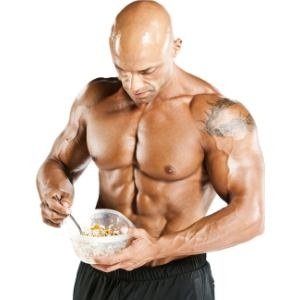
Also, this eliminates the unnecessary carbs your body needs at that point of time lowering the fat content. Eat your meals six times a day that supply your body with essential nutrients, proteins and carbs. On workout days, you need 18- 20 calories per pound of body weight and 12- 14 calories per pound of body weight on the rest day. Switching your diet based on the number of days you work and the number of days you rest can be easy if you are really determined to work for your desired body.
Healthy Diet Plan
So plan out your lean muscle diet plan by including the above mentioned nutritional diet foods in your diet plan and boost up your muscle mass strength. I suggest you to have a look at the following diet plan that is followed by most of the expert body builders.
| Type of Meal | Timings | Type of foods |
|---|---|---|
| Breakfast | 7:30 a.m. | 1 cup plain cooked oatmeal, 4 large whole eggs, large sliced banana, 1-3 g of HMB (Beta-hydroxy-beta-methylbutyrate) |
| Mid morning Snack | 10:00 a.m. | 3-4 slices turkey breast, 2-3 slices whole bread, mustard, lettuce, 2 low fat cheese, A fruit |
| Lunch | 1:00 p.m. | 2 cups pasta, 1 cup broccoli, 6 oz. lean ground beef |
| Midday Snack | 3:00 p.m. | 2 slices whole wheat bread, ½ avocado, ½ can albacore tuna |
| Pre- workout | 5:00 p.m. | 2 slices whole wheat bread, 20 g protein shake (whey or whey/casein) with 3-5 g creatine, 1-3 g HMB, 3-5 g creatine |
| Post- workout | 5:30 p.m. | 20-40 g of protein shake(whey or whey/casein) with 3-5 g of creatine, 32 oz. sports drink, 1-3 g HMB, 3-5 g creatine |
| Dinner | 7:30 p.m. | 8 oz. chicken breast, 1 cup broccoli, baked sweet potato(large) |
| Bedtime | 10:30 p.m. | 1 cup low fat cottage cheese, 2-3 tbsp. peanut butter, 1-3 g HMB |
Follow this lean meal plan to gain weight and pack on muscle strength. I hope this article has cleared your senses on what kind of nutrients to be included in your diet along with the necessary training program. Feel free to share your views via the comments section.

Manoja Kalakanti